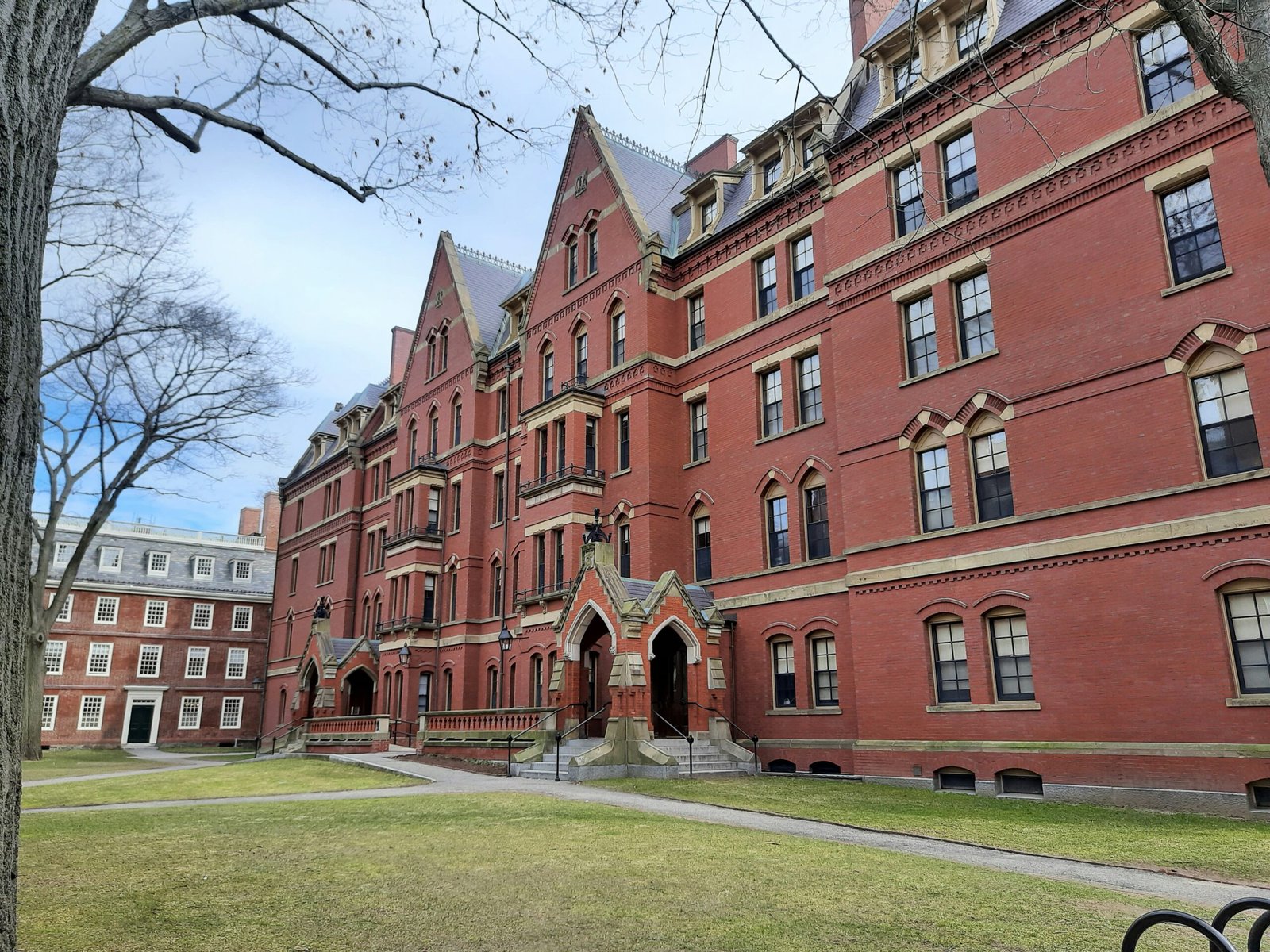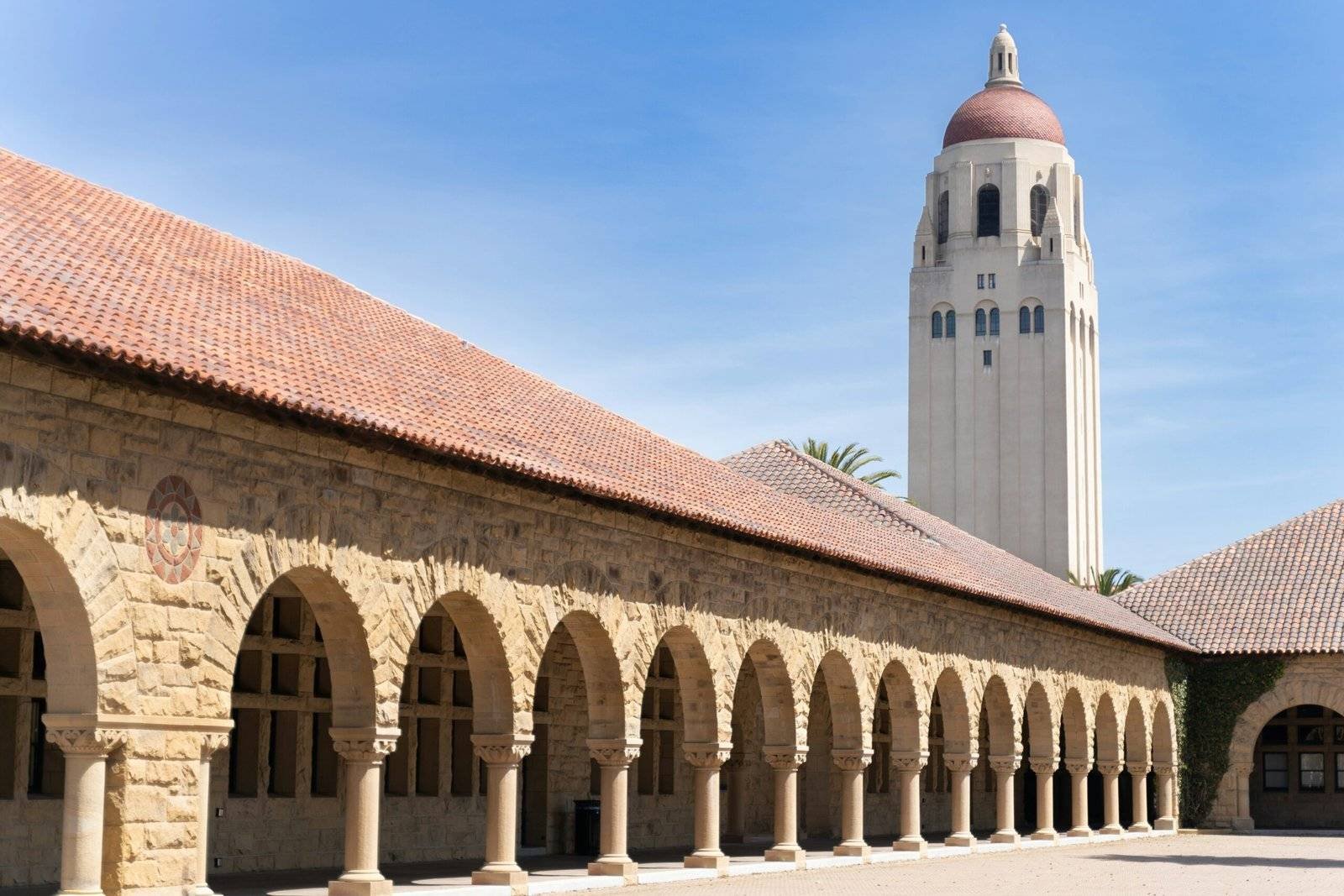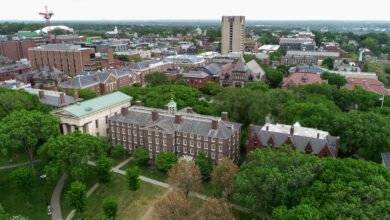
Founded in 1636, Harvard University has a long and storied history that spans over four centuries. It was established by the Massachusetts Bay Colony, making it the oldest institution of higher learning in the United States. Throughout its existence, Harvard has consistently been at the forefront of innovation and intellectual pursuit, shaping the landscape of education and research.
Harvard’s reputation for academic excellence is well-deserved. The university offers a wide range of undergraduate and graduate programs across various disciplines, including arts and sciences, engineering, business, law, medicine, and more. Students at Harvard have the opportunity to learn from world-class faculty who are leaders in their respective fields.
One of the hallmarks of a Harvard education is the emphasis on critical thinking and intellectual curiosity. The university encourages students to explore diverse perspectives, challenge conventional wisdom, and engage in rigorous debate. This commitment to intellectual inquiry is reflected in Harvard’s vibrant campus community, where students from all walks of life come together to learn and grow.
In addition to its academic rigor, Harvard is also known for its rich extracurricular offerings. The university boasts a wide range of student organizations, clubs, and sports teams, providing students with ample opportunities to pursue their passions and develop leadership skills outside of the classroom. Whether it’s joining a student-run publication, participating in a community service project, or competing in collegiate athletics, Harvard students are encouraged to make the most of their time on campus.
Furthermore, Harvard’s location in Cambridge, Massachusetts, offers students a unique blend of historical charm and vibrant city life. The university is situated just across the Charles River from Boston, a city known for its cultural diversity, thriving arts scene, and numerous job opportunities. Students at Harvard have access to a wealth of resources and experiences, both on and off campus.
Overall, Harvard University is more than just an institution of higher learning. It is a place where students are challenged to think critically, pursue their passions, and make a positive impact on the world. With its rich history, academic excellence, and vibrant community, Harvard continues to be a beacon of knowledge and innovation in the field of education.
Since its founding, Harvard University has grown and evolved in many ways. In the early years, the curriculum at Harvard College focused primarily on religious studies and the training of ministers. However, as the needs of society changed, so did the university’s offerings.
During the 18th and 19th centuries, Harvard expanded its curriculum to include a wider range of subjects, such as mathematics, natural sciences, and the humanities. This shift reflected the growing importance of scientific inquiry and the liberal arts in society. The university also began to admit students from diverse backgrounds, breaking away from the tradition of exclusively educating clergy members.
In the 20th century, Harvard continued to adapt to the changing times. It became a leading center for research and scholarship, attracting some of the brightest minds from around the world. The university’s faculty and students made significant contributions to fields such as medicine, law, economics, and the social sciences.
Harvard’s commitment to innovation and excellence has remained steadfast throughout its history. The university has been a pioneer in many areas, including the development of the case study method in business education and the establishment of the first university-based research center for computer science.
Today, Harvard University is recognized as one of the world’s premier academic institutions. Its reputation for intellectual rigor and academic excellence continues to attract top students and scholars from all corners of the globe. The university’s commitment to fostering a diverse and inclusive community is also evident in its efforts to promote access and affordability for students from all backgrounds.
As Harvard University looks to the future, it remains dedicated to its mission of advancing knowledge, educating future leaders, and making a positive impact on society. With its rich history and ongoing commitment to excellence, Harvard will undoubtedly continue to shape the intellectual landscape for generations to come.
Furthermore, Harvard University’s success can also be attributed to its strong emphasis on interdisciplinary collaboration. The university encourages students and faculty members from different disciplines to work together on research projects, allowing for the exchange of ideas and the exploration of new frontiers. This interdisciplinary approach has led to groundbreaking discoveries and innovations that have had a profound impact on society.
In addition, Harvard’s commitment to diversity and inclusion has played a crucial role in its success. The university actively seeks to create a community that is representative of different backgrounds, cultures, and perspectives. This diversity not only enriches the learning experience but also fosters a vibrant and inclusive environment where individuals can thrive and contribute to the community.
Moreover, Harvard’s success can be attributed to its strong partnerships with industry and government organizations. The university collaborates with leading companies and institutions to conduct research, develop new technologies, and address pressing societal challenges. These partnerships provide students and faculty members with valuable opportunities to apply their knowledge and skills in real-world settings, further enhancing the impact of their work.
Furthermore, Harvard’s commitment to public service and social responsibility sets it apart from other institutions. The university encourages students and faculty members to use their knowledge and expertise to make a positive difference in the world. Whether through community service projects, policy advocacy, or entrepreneurial ventures, Harvard students and alumni are actively engaged in addressing social, economic, and environmental challenges.
Lastly, Harvard’s success can also be attributed to its strong financial support and resources. The university has a robust endowment that provides funding for scholarships, research grants, and state-of-the-art facilities. This financial stability allows Harvard to attract top faculty members, support cutting-edge research, and provide students with a world-class education.
In conclusion, Harvard University’s remarkable success can be attributed to its commitment to academic excellence, distinguished faculty, research and innovation, global network, interdisciplinary collaboration, diversity and inclusion, strong partnerships, commitment to public service, and financial support. These factors, combined with the university’s vibrant and inclusive community, have positioned Harvard as a world-renowned institution that continues to shape the future through its groundbreaking research, education, and societal impact.
Ranking of Harvard University
Harvard University consistently ranks among the top universities in the world. Its reputation for academic excellence, research output, and faculty quality has earned it high rankings from various organizations and publications. Here are some notable rankings of Harvard:
- Times Higher Education World University Rankings: Harvard consistently ranks among the top universities in the world according to the Times Higher Education World University Rankings. It is often ranked within the top three universities globally. The rankings take into account several factors, including teaching, research, international outlook, and industry income. Harvard’s strong performance in these areas contributes to its high position in the rankings.
- QS World University Rankings: Harvard is also highly ranked in the QS World University Rankings. It frequently ranks within the top five universities worldwide. The QS rankings evaluate universities based on academic reputation, employer reputation, faculty/student ratio, citations per faculty, international faculty ratio, and international student ratio. Harvard’s outstanding performance in these criteria helps solidify its position as one of the best universities globally.
- Academic Ranking of World Universities: The Academic Ranking of World Universities, also known as the Shanghai Ranking, consistently places Harvard among the top universities globally. This ranking system considers several indicators, including the number of alumni and staff winning Nobel Prizes and Fields Medals, highly cited researchers, and papers published in top journals. Harvard’s exceptional performance in these areas contributes to its consistent high ranking.
These rankings reflect Harvard’s commitment to academic excellence and its standing as a world-leading institution. They serve as a testament to the university’s dedication to providing an exceptional education and conducting groundbreaking research. Harvard’s strong performance in these rankings not only benefits the university itself but also enhances its reputation, attracting top faculty and students from around the world. As a result, Harvard continues to be a leader in the field of higher education and a symbol of academic excellence.
Programs Offered at Harvard University
Harvard University offers a wide range of programs across various disciplines. The university’s diverse academic offerings cater to the interests and aspirations of students from different backgrounds. Here are some of the programs offered at Harvard:
- Undergraduate Programs: Harvard College offers a comprehensive undergraduate curriculum in various fields, including the humanities, social sciences, natural sciences, and engineering. Students have the flexibility to design their own academic paths and pursue interdisciplinary studies.
- Graduate Programs: Harvard’s graduate schools provide advanced degree programs in fields such as law, business, medicine, education, public policy, and arts and sciences. These programs are designed to equip students with specialized knowledge and skills for their chosen professions.
- Professional Programs: Harvard also offers professional programs, including executive education, continuing education, and online courses. These programs cater to working professionals who seek to enhance their knowledge and skills or pursue career advancement.
With its wide range of programs, Harvard University provides students with ample opportunities to pursue their academic and professional goals.
In addition to the undergraduate, graduate, and professional programs mentioned above, Harvard University also offers a variety of specialized programs and initiatives that cater to specific interests and career paths. These programs are designed to provide students with unique opportunities for research, experiential learning, and professional development.
One such program is the Harvard College Research Program, which allows undergraduate students to engage in independent research projects under the guidance of faculty mentors. This program enables students to delve deeper into their academic interests and gain valuable research experience, which can be beneficial for graduate school applications or future careers in academia.
Another notable initiative is the Harvard Innovation Lab (i-lab), which provides resources and support for students interested in entrepreneurship and innovation. The i-lab offers workshops, mentorship programs, and funding opportunities to help students turn their ideas into viable businesses or social ventures. This initiative reflects Harvard’s commitment to fostering an entrepreneurial spirit and encouraging students to make a positive impact in the world.
Furthermore, Harvard University has a strong emphasis on interdisciplinary studies and encourages students to explore multiple fields of study. The Harvard Integrated Life Sciences (HILS) program, for example, allows graduate students to pursue research and coursework across various life science disciplines, including biology, chemistry, and physics. This interdisciplinary approach fosters collaboration and innovation, enabling students to tackle complex scientific challenges from different perspectives.
Moreover, Harvard’s commitment to diversity and inclusion is reflected in its programs and initiatives. The Harvard College Women’s Center, for instance, provides resources and support for female students, promoting gender equity and empowering women to excel academically and professionally. Similarly, the Office of Diversity, Inclusion, and Belonging works to create a welcoming and inclusive environment for students from all backgrounds, ensuring that everyone has equal access to opportunities and resources.
Overall, Harvard University’s extensive range of programs and initiatives reflects its commitment to academic excellence, innovation, and social impact. Whether students are interested in pursuing a traditional academic path, launching a startup, or making a difference in their communities, Harvard provides the resources, support, and opportunities necessary for success.
Admission Process at Harvard University
The admission process at Harvard University is highly competitive, as the institution receives a large number of applications each year. Here is an overview of the admission process:
- Application Submission: Prospective students must submit their applications online through the official Harvard admissions portal. The application typically includes personal information, academic transcripts, standardized test scores (such as the SAT or ACT), recommendation letters, and essays.
- Review and Evaluation: Once the applications are submitted, they undergo a thorough review and evaluation process. Admissions officers consider various factors, including academic achievements, extracurricular activities, leadership potential, essays, recommendations, and personal qualities.
- Interview (Optional): Some applicants may be invited for an interview as part of the evaluation process. The interview allows the admissions committee to gain further insights into the applicant’s character, interests, and motivations.
- Admission Decision: After careful consideration, the admissions committee makes the final decision regarding each applicant. Successful applicants receive an offer of admission, while others may be placed on a waitlist or receive a rejection.
It is important to note that the admission process at Harvard is holistic, taking into account the overall profile of the applicant. While academic achievements are crucial, the university also values qualities such as leadership, community involvement, and personal achievements.
Once a student receives an offer of admission from Harvard University, they are required to submit a confirmation of enrollment and pay a deposit to secure their place in the incoming class. The university provides detailed information and deadlines for this process to ensure a smooth transition for the admitted students.
After confirming their enrollment, students are given access to an online portal where they can complete various pre-arrival tasks. These tasks may include submitting health forms, housing preferences, and registering for orientation programs. The university also provides resources and support for international students to assist with visa applications and transitioning to life in the United States.
As the start of the academic year approaches, Harvard University organizes a comprehensive orientation program to welcome incoming students. This program aims to familiarize students with campus resources, academic expectations, and the vibrant community they will be joining. During orientation, students have the opportunity to meet their fellow classmates, faculty members, and advisors, setting the stage for a successful and fulfilling college experience.



